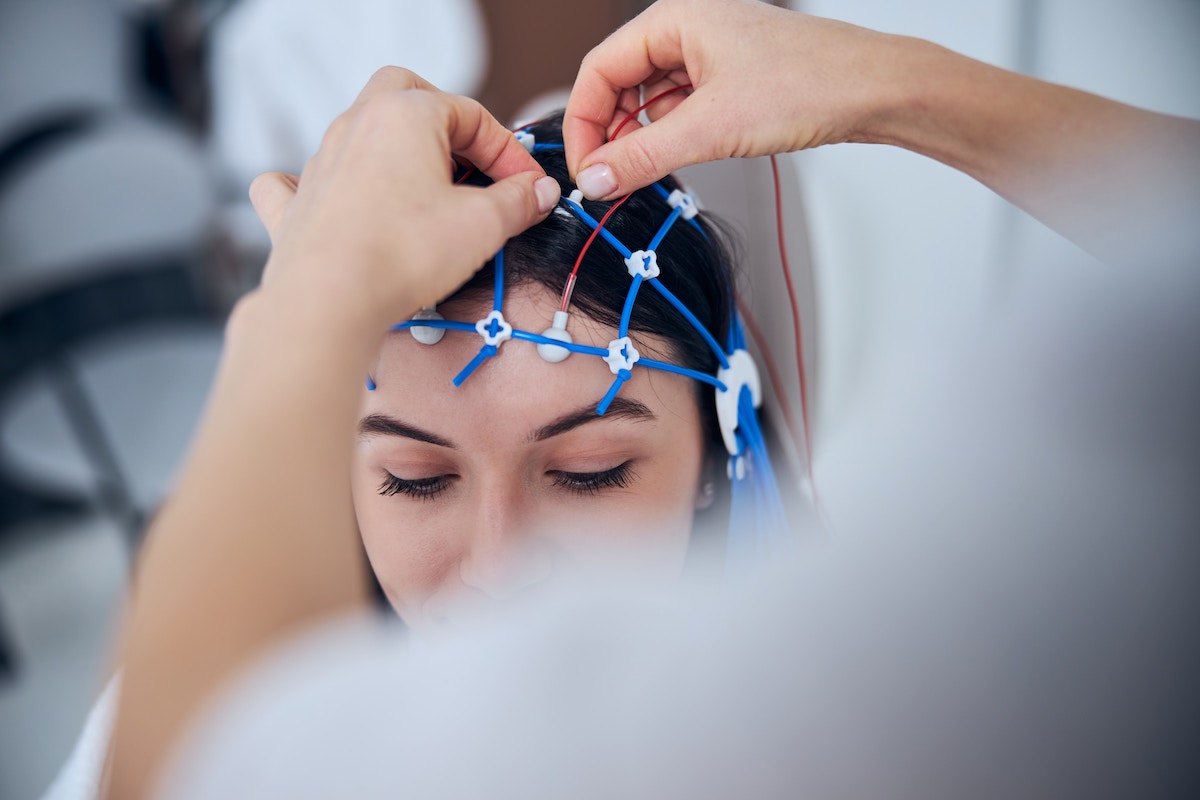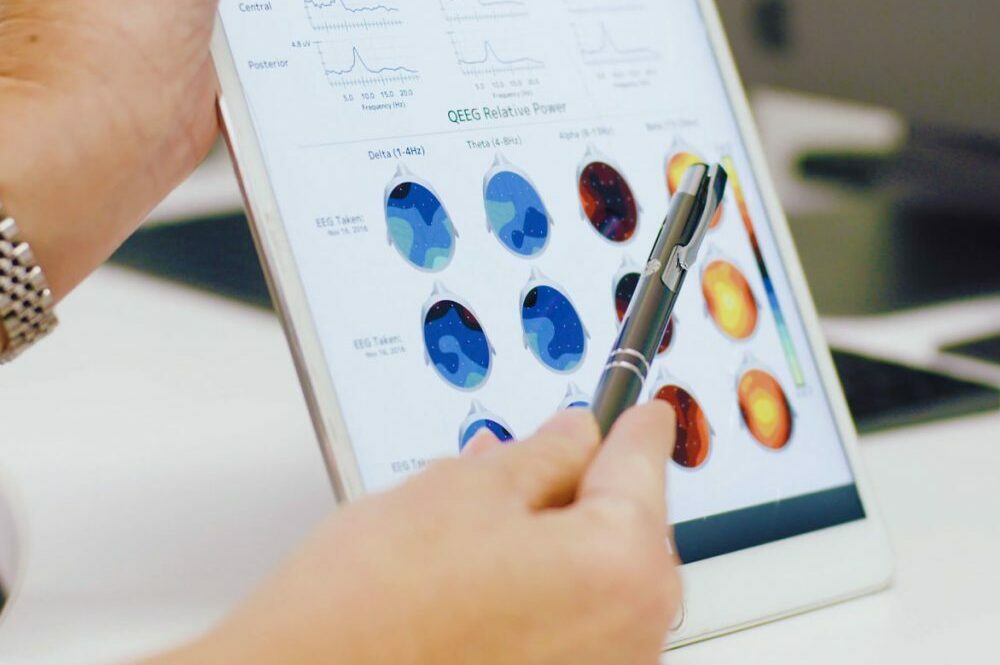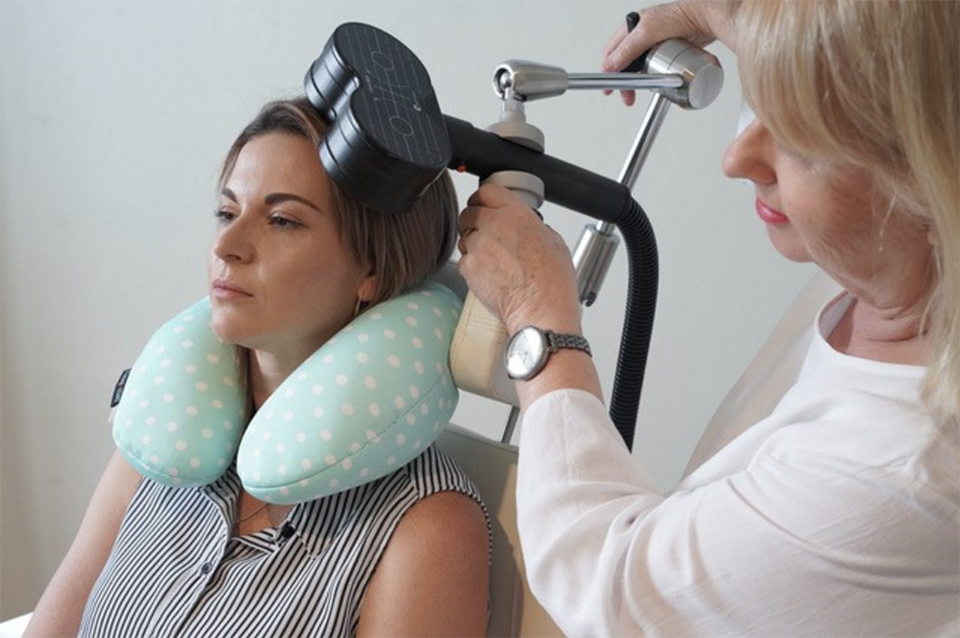
After-effects of Stroke
The After-Effects of a Stroke can be treated with MeRT
- Cryptogenic stroke is from an unknown cause but can also be quite debilitating.
- Brain Stem stroke occurs in the stem of the brain instead of the brain itself. Symptoms can be milder in some cases depending on the degree of stroke, but these types of strokes can also be fatal.
Types of Strokes
- Ischemic stroke occurs when a clot obstructs a blood vessel in the brain. This prevents oxygen and nutrients from reaching the affected part of the brain. This is the most common type of stroke, occurring in 87% of patients.
- Hemorrhagic stroke occurs when weakened blood vessels within the brain rupture and bleed into the surrounding tissues. This bleeding causes compression of some of the surrounding tissues, which results in brain damage. The most common type of hemorrhagic stroke is an aneurysm (a blood vessel that bursts) caused by uncontrolled high blood pressure. Another type of hemorrhagic stroke is AVM or arteriovenous malfunctions. AVM is a congenital defect that occurs when some of the blood vessels have structural problems. AVM also creates a higher risk for aneurysms because of congenital weakness in the blood vessels themselves.
- TIA or Transient Ischemic stroke is also referred to as a “mini-stroke.” It is caused by a temporary clot in the brain, and symptoms of this type of stroke are very mild. However, these should be taken seriously because they are a big warning that a full-blown stroke will occur next and put a person at much higher risk.
Stroke After-effects
After-effects of a stroke can affect different bodily functions depending on where in the brain the stroke occurs. If the stroke occurs on the left side of the brain, it usually affects the right side of the body; if it occurs on the right side of the brain, the left side of the body is affected.
The degree to which the brain is damaged determines the extent of the after-effects, rehabilitation needs, and the amount of permanent disability.
Because the brain controls every function in the human body, many areas can be affected, sometimes permanently. However, the after-effects of stroke can also be helped immensely by rehabilitation and therapy. The time for recovery can take weeks to months to years, depending on the severity of the stroke.
Our Medical Director, Neurologist Dr. Miller
Dr. Spencer O. Miller, a Neurologist in Dallas, Texas, is the owner and Medical Director of Brain Treatment Center Dallas. He received his medical degree from the University of Mississippi School of Medicine and has been in practice for 12 years. He spent five of those years in the US Air Force, where he saw many brain injuries, including soldiers suffering from PTSD and TBI.
Dr. Miller now specializes in MeRT® (Magnetic e-Resonance Therapy) treatment of traumatic brain injury, depression, post-traumatic stress disorder, dementia, autism, and multiple other brain disorders at his clinics, the Brain Treatment Centers in both Dallas and Plano.
Dr. Miller is also affiliated with Baylor University Medical Center, where he specializes in stroke, headache medicine, traumatic brain injury, post-traumatic stress disorder, and seizure. Additionally, he is associated with the Texas A&M Science Center College of Medicine.
MeRT can be an effective treatment for the After-Effects of Stroke
Here at the Brain Treatment Center Dallas, Dr. Miller and his staff offer a highly customized rTMS treatment called MeRT, as a protocol for symptomatic changes after stroke. MeRT stands for Magnetic E (for EEG and EKG) Resonance Treatment.
A 2022 study, Therapeutic Effect of Repetitive Transcranial Magnetic Stimulation for Post-stroke Vascular Cognitive Impairment: A Prospective Pilot Study, found this:
This study was conducted to determine the possibility of inducing cognitive recovery by using rTMS treatment for patients with PSCI [Post Stroke Cognitive Impairment] that persisted for more than 6 months, despite intensive rehabilitation treatment for cognition. The results indicated a cognition-enhancing effect in the patients via increments in the IQ, AVLT, CFT, and MQ scores just after 2 weeks of rTMS completion. After 3 months, the increments in the AVLT, CFT, and MQ scores were sustained, and the IQ was increased with marginal significance. Moreover, the MMSE and MoCA scores, which did not show changes 2 weeks after the rTMS, were also increased at this time.”
MeRT is a cutting-edge treatment protocol that combines technologies of repetitive Transcranial Magnetic Stimulation (rTMS), Quantitative Electroencephalogram (qEEG), and Electrocardiogram (ECG/EKG) to analyze and formulate treatments tailored for each person’s unique brain pattern.
Our patients have reported significant clinical improvements after going through treatment.
Treatment protocols are usually four to six weeks. Appointments are 30 to 45 minutes, five times per week, Monday through Friday. Generally, patients have reported noticeable improvements beginning in the first week.*
How MeRT Differs from Standard TMS
TMS (Transcranial Magnetic Stimulation) modulates the brain’s electrical activity by using magnetic fields which pass through the scalp from an electromagnetic coil.
MeRT is a unique and improved version of TMS, as it is a much more individualized approach to brain modulation. It is tailored to the patient’s needs based on frequency, location, and power used. While the neuromodulation equipment used is FDA-cleared to treat depression which has been resistant to medications, we also use it off-label for other disorders in the practice of medicine. These include other brain disorders.
We perform a quantitative EEG before modulation treatment starts in order to determine the exact frequency of your brain.
The patient’s initial tests are analyzed very carefully as to the brain’s pattern of function and activity. Through this detailed analysis, we can determine the correct neural synchronization. This information is then used to devise a highly personalized protocol for each patient, with the purpose of encouraging improved brain communication.
Starting as a New Patient
When you start as a new patient at the Brain Treatment Center Dallas, you will initially need two appointments, approximately two days apart. Both appointments will be about an hour in length. These appointments will be used to determine if Dr. Miller feels you can truly benefit from the MeRT [Magnetic e-Resonance Treatment] Program and, if so, to develop a tailored treatment plan based on your test results. After testing and Consultation, you are not obliged to begin treatment. This is something that you will determine once you have seen your test results and consulted with Dr. Miller.

Initial Testing
At the first appointment, we will go over your reasons for seeking help, your medical history, your health goals, and all of your symptoms. You will then begin initial testing, which will involve an EEG and an EKG. These are both completely painless and easy and done right in our office. We then send your information and test results to our scientific and clinical teams, who will carefully analyze the results and determine the current state and functioning of the brain together with Dr. Miller.
We use a patented, scientific approach with the neurophysiological data gathered through testing to develop a highly customized treatment plan aimed at encouraging healthy brain communication and function.

Consultation
At your second appointment, you will meet with Dr. Miller for a Consultation. He will discuss your test results and whether he and our scientific team feel you may achieve results through our treatment protocol. This appointment will also serve to answer any additional questions you may have. After that second appointment, Dr. Miller will lay out your individualized treatment plan and the protocols to be followed for the best results. At that point, you may discuss fees, length of treatment, and schedules, and then decide whether to go forward and schedule your treatment.

Test Run – The Assessment
We deliver the MeRT protocol using TMS. You simply sit in a comfortable chair while a trained technician carefully positions a simple device on your head. This device produces a magnetic field to induce mild electrical currents in the targeted regions of the brain. There is no pain and no electrical currents, just a slight sensation.
We will perform an additional EEG and EKG after about a week of treatment, allowing us to assess progress and make any needed modifications. In this way, we are always taking the best and most exacting approach based on the current neurological state.
Insurance Coverage
Unfortunately, we do not accept insurance nor file it on your behalf. However, we can provide you with CPT codes and a billing breakdown. You can submit these to your insurance for possible reimbursement for conditions that rTMS is FDA-cleared to treat (MDD and OCD). On occasion, individuals have been successful in receiving reimbursement for EEGs and clinical evaluations, and possibly other elements for treatment, depending on the individual’s coverage. It has been our experience that Medicare does not reimburse any of the treatment costs.
Contact our New Patient Coordinator for More Information about MeRT
When many patients come to see us, they have lost hope, as they don’t see any light at the end of the tunnel.
It’s rewarding as a practitioner to help so many people realize a much better “normal” and improved quality of life.
If you have questions or would like to discuss our treatment protocols, we offer a free consultation by phone.
Our New Patient Coordinator will take the time to listen and explain. She is able to answer most questions and discuss our protocols, scheduling, fees, and other information. She is happy to assist you in any way she can.
Please call us to get more information about how our clinic and Dr. Miller may help you with your health goals and to schedule an initial screening to see if MeRT may be an option.
Contact our New Patient Coordinator
for more information. Or fill out the form below.
